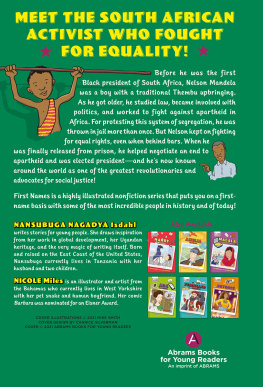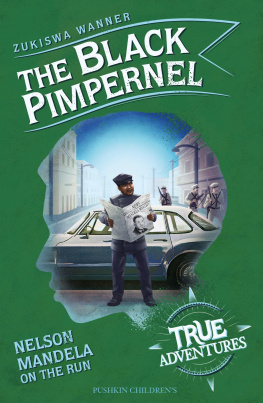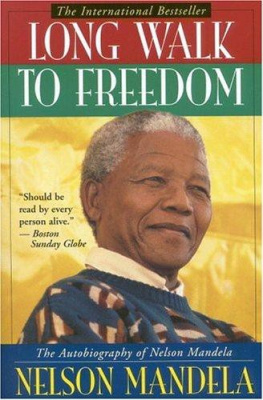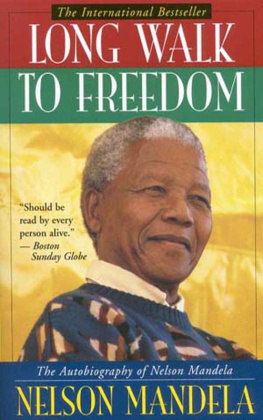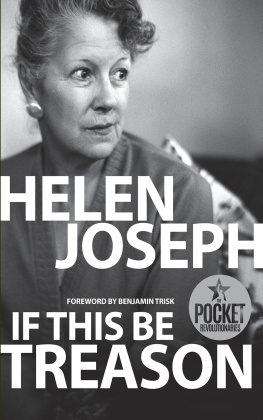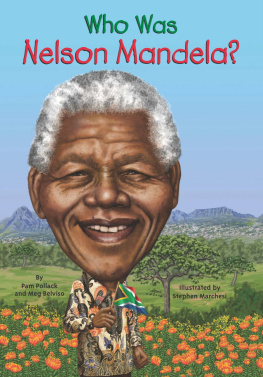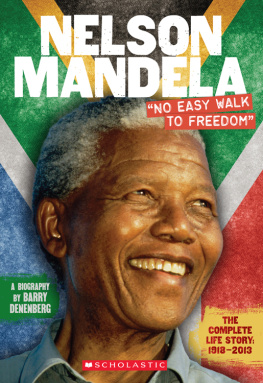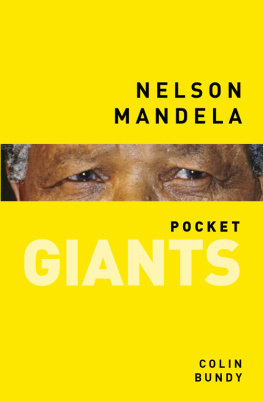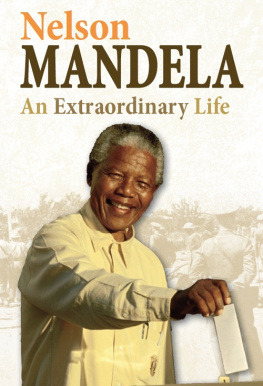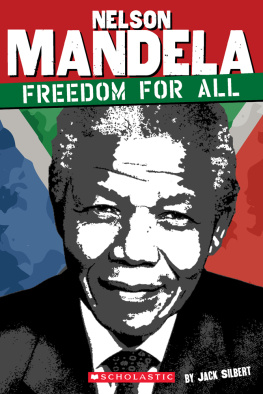Acknowledgments
I OWE SPECIAL thanks to four of the participants in the Rivonia trial for their time and encouragement. Denis Goldberg submitted to two lengthy interviews and entertained me at his Houk Bay, South Africa, home. George Bizos and Arthur Chaskalson graciously gave me time to talk about the case and their roles in it. I am especially grateful to Joel Joffe for long conversations, for his helpful reading of a draft of the manuscript, and for his useful comments. I also thank Joel and his wife, Vanetta, for their hospitality at Liddington Manor.
My research into documents, contemporary newspaper reports, and photographs was greatly facilitated by librarians and others at the University of the Witwatersrand (especially Michele Pickover) in Johannesburg, the Brenthurst Library (especially Diana Madden) in Johannesburg, the National Archives of South Africa in Pretoria and Cape Town, the British National Archives in London, and the Lyndon Baines Johnson Library in Austin, Texas. I also want to give special thanks to the people at the Liliesleaf Farm Museum in Rivoniaparticularly Nicholas Wolpe and Adrienne van den Heeverfor their help in finding documents, for loaning me copies of transcripts of interviews with participants, and for providing photographs used in this book. Nick Sexton, Donna Nixon, and Jim Sherwood of the University of North Carolina Law Library provided valuable research assistance.
Conversations with others who have written about some of the same events, including Stephen Clingman and Mark Gevisser, were extremely useful. The superb historian William Leuchtenburg gave me encouragement and advice throughout the project.
My warm thanks go to Faith and Thom Mandiwana for hosting me on several occasions while I was conducting research for the book. Their hospitality, nourishment, and transportation were greatly appreciated. Their continuing friendship is priceless.
Although not directly involved in the research for this book, many people have been responsible for my many visits to South Africa and for my love for that country and its people. I owe much gratitude to everyone associated with the Black Lawyers Association of South Africawith special thanks to the late Godfrey Pitje, Mojanku Gumbi, Justice Moloto, Dik-gang Moseneke, Sibusiso Gamedi, and so many others. I also acknowledge the companionship of the many American lawyers who have given selfishly of their time to teach trial advocacy in South Africa, especially Jim Ferguson, Geraldine Sumter, and Rudy Pierce.
I imposed on the time of several people who provided valuable feedback on early versions of this book as well as encouragement: Gene Nichol, Rosemary Waldorf, and Tom Wolf. Mike Tigar can be credited and blamed for encouraging this project in the first place and for his helpful reading and comments on drafts. My 201011 research assistant, the ever-helpful Meghan Jones, did important editing work on the later drafts of the book. Earlier research assistants Christina Simpson, Kimberly Velez, and Joanna Holguin, also provided valuable assistance. I am also indebted to Alida Nortier, at the time a law student at Stellenbosch University, for finding and translating articles from the Afrikaans language newspaper Die Burger.
Many thanks to my agent, Valerie Borchardt, for her work, and for her encouragement of this project. My editor, Tim Bent, did an outstanding job. Any legalese that remains in the book is my fault, not his.
I am always grateful to the University of North Carolina School of Law and all the people associated with it for their support in all my endeavors. Special thanks go to Dean Jack Boger for his encouragement of this project.
And finally, and most important, I thank members of my family for their help and support. My son Jonathan, who continues to work to keep North Carolinians from the death penalty, is an inspiration to me. My son Dan, who also inspires me by his work to ease the pain of poverty in this country, provided a helpful reading of an early draft. But most especially, I thank my wife, Margie, for her critical readings of many drafts of the book, for her constant encouragement and good humor, and for her companionship both on trips abroad and at home.
Notes
INTRODUCTION
There was an earlier and shorter Anglo-Boer War fought in 188081 over the British annexation of the Boers Transvaal Republic, led by Paul Kruger, into the larger British colony. The Boers inflicted reverses on the British army causing Britain to reverse the annexation and to grant a degree of independence to the Transvaal. See Pakenham, The Boer War, 11.
Sparks, The Mind of South Africa, 128, citing A. C. Martin, The Concentration Camps 19001902 (Cape Town: Timmins, 1957), 31.
The population estimates are from the South African Bureau of Statistics, reprinted in Austin, Britain and South Africa, 3.
CHAPTER 1
In addition to the record of the Rivonia Trial, the background material on the purchase and use of the Liliesleaf Farm property comes from a number of sources including Hilda Bernstein, The World That Was Ours; Rusty Bernstein, Memory Against Forgetting; Clingman, Bram Fischer; Frankel, Rivonias Children; Joffe, The State vs. Nelson Mandela; Kathrada, Memoirs; Mandela, Long Walk to Freedom; Meredith, Fischers Choice; Meredith, Nelson Mandela: A Biography; Sampson, Mandela; Wolpe, The Long Way Home. Frankels book Rivonias Children was especially useful in providing information with regard to Liliesleaf Farm, as well as the events immediately preceding and during the raid; Rivonias Children both collects material from other sources and provides original material based on interviews.
Frankel, Rivonias Children, 85.
Strydom, Rivonia Unmasked, 21.
Mandela, Long Walk to Freedom, 243.
This name is a reference to the Scarlet Pimpernel, a fictional characteran elusive hero using many disguisesthat was widely popular during the first half of the twentieth century. His first appearance was in the play and novel by Baroness Emmuska Orczy, The Scarlet Pimpernel, first published in 1905. The work was set during the Reign of Terror following the start of the French Revolution.
De Villiers, Rivonia: Operation Mayibuye, 6.
Ibid.
Frankel, Rivonias Children, 24.
Bizos, Odyssey to Freedom, 212.
Meredith, Fischers Choice, 64.
Letter from Ambassador Sir Hugh Stephenson to Sir Geoffrey Harrison at Foreign Office, December 30, 1963, reporting on visit of John Arnold, QC and Tom Kellock, UK National Archives, FO371/177122, JSA 1641/1.
Frankel, Rivonias Children, 28.
Ibid., 2728.
The accounts of the raid on Liliesleaf Farm and the events immediately leading up to it from the police perspective are taken from the two books written on the Rivonia Trial by persons sympathetic to the prosecution. De Villiers, Rivonia: Operation Mayibuye, 13; Strydom, Rivonia Unmasked, 1425. Some of the background information was also included in the testimony of various police officers at the Rivonia Trial.
The accounts of the raid from the perspective of those arrested are taken from a number of sources, including those set out in note 1. The details of the documents found in the raid come from a review of the documents themselves in the Rivonia Trial record.
Authors interview with Denis Goldberg, October 7, 2008.
Frankel, Rivonias Children, 32.
Strydom, Rivonia Unmasked, 30.
Frankel, Rivonias Children, 34.
Kathrada, Memoirs


